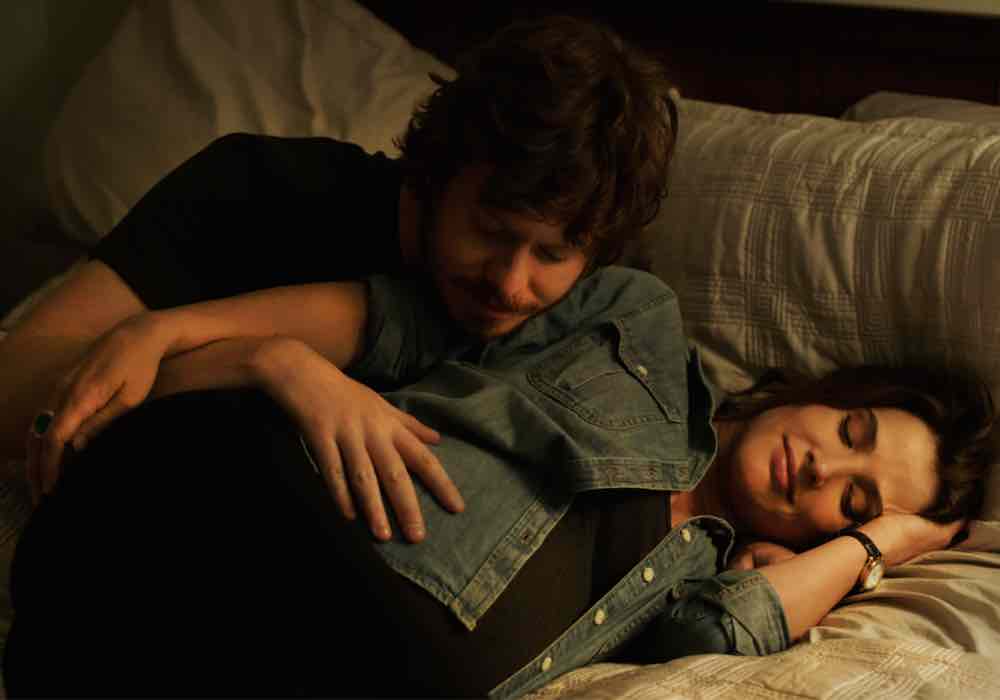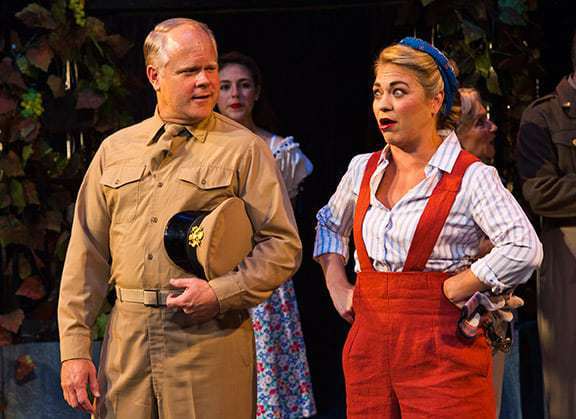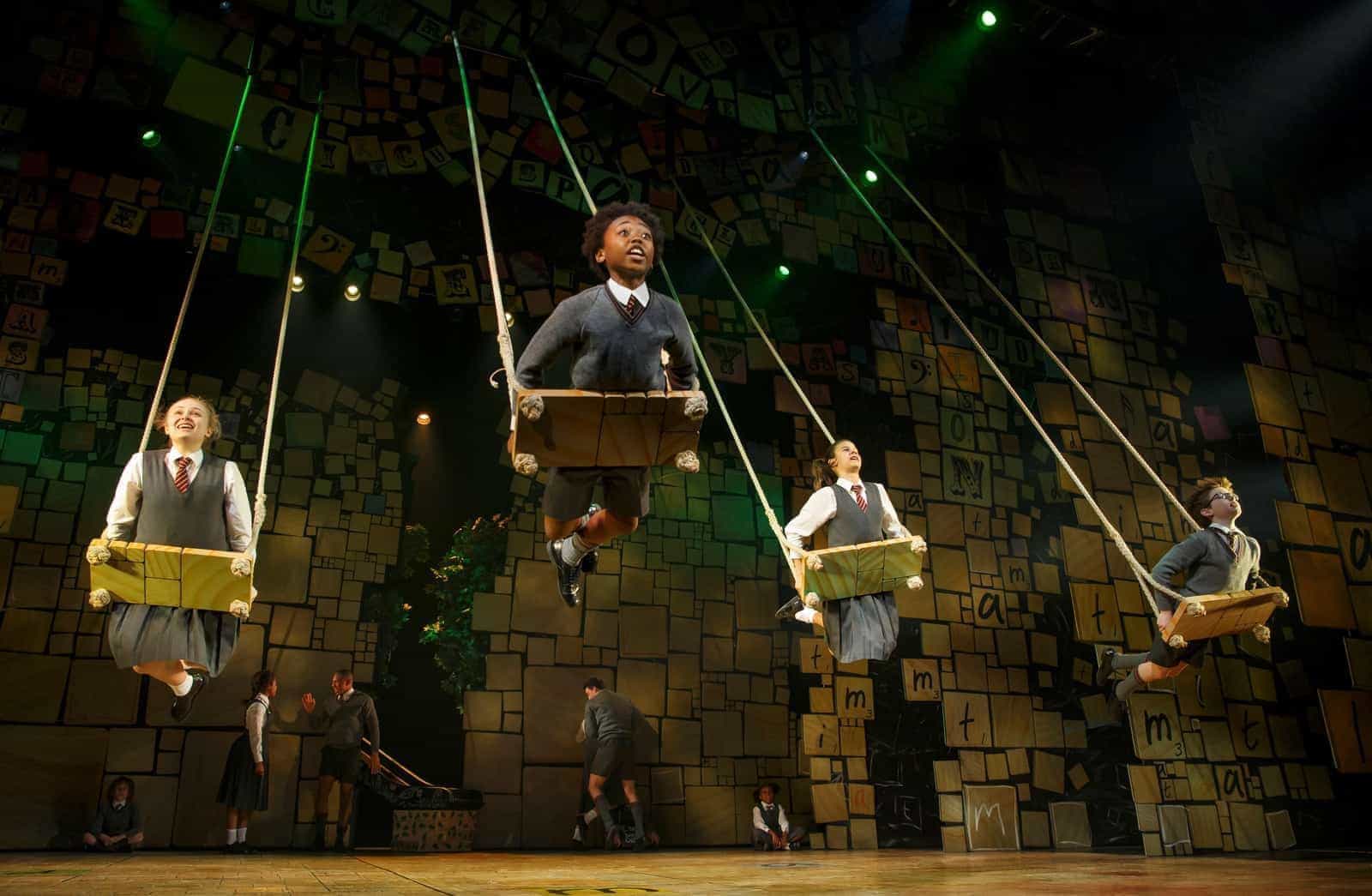Kris Swanberg’s Unexpected is a quiet film full of small, wonderful revelations about what women go through during pregnancy. Swanberg maintains the perspective of the female characters throughout: the men come and go, but the women are always on-screen, often dealing with pregnancy alone.

The title of Kris Swanberg’s new film, Unexpected, refers not just to the unexpected pregnancies with which its two protagonists — the thirty-year-old school teacher Samantha (Cobie Smulders) and her student, high school senior Jasmine (Gail Bean) — spend the film coping. These are both mature, smart, level-headed women, as equipped and capable as anyone to become a mother. The surprise for Samantha, especially, is the unexpected emotions that she has in connection with her pregnancy: what will she do once the baby is born? Is she OK with taking time off from her career to parent? Although she’s in a strong, committed relationship with her partner John (Anders Holm), she goes through an emotional journey that he just can’t understand, in part because it’s not his body that’s changing.
Samantha finds herself growing attached to her star student, Jasmine, who is also pregnant but in a less stable place in her life for dealing with it. As a young, black woman Jasmine doesn’t benefit from the white privilege Samantha takes for granted, and she’s seriously considering delaying college in order to give her child a proper home. Intent on helping Jasmine achieve her full potential, and on ignoring her own problems, Samantha implicates herself into Jasmine’s life to help her with college applications and future planning.
Because both women come from different socioeconomic backgrounds and have more than a decade separating them, they each experience preparing for parenthood differently. Samantha’s worries seem frivolous and privileged to Jasmine, who has a loving family but is used to disappointment. Each understands the uncertainty and deep emotional investment that the other is currently experiencing more so than anyone else. Jasmine is assertive and self-aware while Samantha is well-intentioned and often ill-equipped. Their relationship plays out realistically, helping Swanberg avoid any traces of the white saviour trope.
[clickToTweet tweet=”‘Birth scenes in other films were always…from the male perspective, which is so crazy.” quote=”‘Birth scenes in other films were always…from the male perspective, which is so crazy. But if you think about who’s making movies — the majority of films, especially studio comedies — it’s men.”]
Unexpected is a quiet film full of small, wonderful revelations about what women go through during pregnancy. Swanberg maintains the perspective of the female characters throughout: the men come and go, but the women are always on-screen, often dealing with pregnancy alone. Swanberg noted that most films about expecting a baby are from a male perspective; perhaps, she posits, because most films are made by men.
The film is a great example of why we need more female screenwriters and directors. As Greta Gerwig noted in January, “Men don’t know what we’re [women are] doing when they’re not around.” Unexpected is predicated on that principle, bringing to life the very specific story of two women’s emotional journeys in which men are only one factor.
At the San Francisco International Film Festival in May, I sat down with writer-director Kris Swanberg to talk about telling this female-centric story, developing the script and aesthetic, and how her art imitates her life.
The Seventh Row (7R): You prioritized the women’s perspective in a lot of ways. What made you want to do that, and how did you end up writing it that way?
Kris Swanberg (KS): I’m a woman, and I was pregnant before. I have a four-year-old. I’m pregnant again. So it was really natural for me to just write it from my perspective, because I’m me. I didn’t really think much about it until I started getting more serious about making it and we were in pre-production, thinking about shots.
One thing I was looking at a lot was how people film birth scenes in movies. I really wanted it to feel true to my own experience. Birth scenes in other films were always either hyper-dramatic or they’re hyper-comedic. [I didn’t want either.] They’re almost always from the male perspective, which is so crazy, because it’s just what women go through. If you think about who’s making movies — the majority of films, especially studio comedies — it’s men. So it makes sense that it would be more from their perspective.
[clickToTweet tweet=”‘I was looking at…birth scenes in movies…They’re almost always from the male perspective.'” quote=”I was looking at…birth scenes in movies…They’re almost always from the male perspective.”]
A film like Knocked Up or Nine Months is typically like “This is what I’m going through, and my wife is crazy. What do I do?” instead of a true portrayal of what a woman goes through during pregnancy. It was really natural to me. It wasn’t even really a decision. I wasn’t like, “There’s a problem in the marketplace, and I want to fix it!” It was more that I wanted to make a movie about this, and when I looked into it further, I was struck by how few films there were like that.
7R: When Samantha tells John that they’re pregnant, she’s so calm about it, and he’s so supportive. There’s no drama about breaking the news or about what to do about the pregnancy. It’s just about her emotions.
KS: What I was working toward, and what I sometimes struggled with, was that I wanted the drama to come from a real everyday place and an internal place. I didn’t want there to be so many external factors that were making things difficult, because that’s not the case for normal people.
[clickToTweet tweet=”‘I wanted the drama to come from a real everyday place and an internal place.’ – Kris Swanberg” quote=”I wanted the drama to come from a real everyday place and an internal place.”]
[For] people in mature and healthy relationships, who are going through an unexpected pregnancy — or really, even an expected pregnancy — it’s rare that you come home to tell your boyfriend that you’re pregnant and he’s like, “What the fuck? It’s not mine!” Sure, that totally happens, but that’s not the norm. There’s enough drama there in two people saying, “Oh my god! Let’s try and figure it out!” That’s what I wanted to focus on. And that was the case for the whole movie. Certainly, there’s some external factors that are barriers in their journey. But really it’s about what’s going on for them, what’s going on in their minds that’s keeping it difficult.
7R: The film has one or both of the two women in every scene, yet there are no scenes with the men alone. Even when the men are in scenes with their partners, they’re almost in the background. You really get the sense that even though Samantha has a supportive partner, she’s still alone in this. Jasmine is even more alone.
KS: I wanted it to be from their perspective. The anxieties and worries that she’s experiencing when she’s pregnant are things that I went through, not so much when I was pregnant, but after I had my son. When he was a newborn, I really went through an identity crisis. It was something that my husband just couldn’t understand.
Men, of course, have their own issues regarding being fathers and entering fatherhood. That’s a difficult journey for a lot of them. But there are no expectations that they would ever do anything other than work. So it doesn’t feel like a choice to them. If a father gave up his career to stay home with his kids, everyone would applaud him. If my husband goes to the grocery store with my son, then people are like, “You are such a good dad.”
The expectations are just so different. They’re really congratulated for being involved at all, because they are so much more involved than their fathers were. So they’re constantly patting themselves on the back. They’re never feeling like, “Oh, I could be doing more.” They just don’t have that same kind of guilt that women do. It’s weird to decide to be a full-time mom. It’s not a respected choice. People expect it as an obligation.
Men just don’t have to go through that stuff and the guilt for not wanting to do it. It was just something that I was not expecting. It’s something that nobody prepared me for. When I was going through it, emotionally, I did feel really isolated and alone. My husband was supportive but didn’t understand. And I haven’t seen a movie that deals with that before, so I really wanted to. I hear all the time from women who come up to me after seeing the screening that it really resonates with them, because that was something that they went through, too.
7R: There was a lot of intimacy and tenderness between Samantha and John. We get angry at him sometimes on her behalf, but he’s never vilified. He’s always a very sweet guy. How did you manage that delicate balance?
KS: A lot of it was casting. Anders Holm, who plays John is really like a sweet, kind of goofy guy, who’s really nice. I think my husband is [also] a really sweet, nice guy but just doesn’t get it. That was a problem with [my husband], too.
Nothing John was saying was wrong. He wasn’t like, “You have to stay home.” He was just like, “Listen, this just makes the most sense, practically.” And it did, but John only knew how to value that more than the emotion that she was struggling with. He didn’t understand how to qualify that. I didn’t want to make John a bad guy. I just wanted him to not understand and for that to be a point of contention between them.
It was a delicate balance because it’s a movie, and there needs to be conflict and some drama. Some other people that are more in the Hollywood system definitely advised me to amp up the drama, but I didn’t take their advice. I’m glad I didn’t, because for me, it really came out to be an honest, realistic film that I’m really proud of.
[clickToTweet tweet=”‘People in the Hollywood system advised me to amp up the drama, but I didn’t take their advice.'” quote=”People in the Hollywood system advised me to amp up the drama, but I didn’t take their advice.”]
7R: Even though both Samantha and Jasmine have unplanned pregnancies, there’s never a sense that they’re irresponsible or immature. I don’t think I’ve ever seen that before.
KS: It’s something that I thought about a lot, because when people think about teen pregnancy as a social issue, in this country, they often blame these girls, [wondering] why don’t they just go get birth control? It’s free. You can just walk into a Planned Parenthood and get it. Sometimes, you can walk into the high school and get it. So why aren’t they just using condoms? They sort of blame it on them. I wanted to make [Jasmine] not a super-precocious, ultra-responsible kid, who was like a prodigy. I did want to make her bright and funny and cool and mature, for a teenager. [Jasmine was someone] who just made a mistake.
[clickToTweet tweet=”‘I really wanted a balance between it feeling like a drama and some kind of gritty portrayal.'” quote=”I really wanted a balance between it feeling like a drama and some kind of gritty portrayal.”]
7R: The film has this very intimate feel to it, with soft lighting and a lot of closeups. How did you think about developing the aesthetic, and what was the collaboration like with your cinematographer?
KS: We collaborated a lot on it. We watched a lot of movies for inspiration, to use as references. I really wanted a balance between it feeling like a drama and feeling like some kind of gritty portrayal. I was really worried about portraying these poor inner city neighbourhoods. I wanted it to feel realistic. I was actually really worried about shooting handheld, which we ended up doing. A lot of films shoot handheld, and it’s like gritty and bullets are flying by, and it’s a really dangerous vibe. I didn’t want that. I wanted it to feel real, like these neighbourhoods actually are. I didn’t want it to feel more dramatic than it needed to be.
So that was kind of like my underlining principle for everything, for the story, for the acting, for the cinematography: I wanted it to feel realistic, and I do want there to be some natural drama. We used a lot of natural light. When we were shooting at night or when we needed to light it, which we did quite a bit, it was all about making things look real and using practical light. We were very conscious not to over-light it.
7R: I read that you used to be a teacher. How did that inform the script, especially the relationship between Jasmine and Samantha?
KS: I used to teach film and video on the West End of Chicago. The film is a much more fictionalized version of what happened. I did get laid off, like the school closed down. After I stopped teaching, I was six months pregnant, and one of my former students who was 19 called me and told me that she was pregnant. So we kind of went through this pregnancy together.
I had, of course, my own anxieties about being the perfect upper-middle class mom and buying all organic and making my own baby food and cloth diapering, and all that stuff that is weirdly so stressful. Those were not the issues she was having. She never considered cloth diapers once, for instance. It was a cool experience for me to go through that with her. It really gave me a lot of perspective, and so I was able to support her. It was a fine line between supporting her and invading in on her life too much.
It was different from the movie. I wasn’t trying to get her into college. We weren’t doing yoga together. We had a friendship that was really unique, and we’re still close today. It was something that I wanted to talk about, because we had such different experiences because of our culture and community, but also because of our age and circumstances.
TSR: The story of the teacher and the student and the student sometimes being wiser than the teacher is a cliche that’s been done before. But I didn’t feel like this film was like that. How did you avoid cliches?
KS: It wasn’t something where it was like, “Well, I can’t do this because this has been done before.” It was more like, “What feels honest?” The reason why those things feel like cliches is because they just don’t feel real. They feel like devices. In general, I was trying to avoid that. That white saviour teacher coming in and saving all the black students is just sickening, so definitely I didn’t want to do that. It’s just not true, and it wasn’t my experience. It was easy for me to avoid.
This interview has been edited for length. Unexpected is now available to stream on Netflix and VOD.
Director Ramona Diaz talks Motherland and life in the maternity ward

